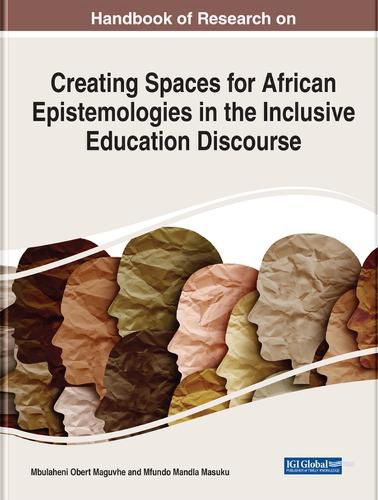Readings Newsletter
Become a Readings Member to make your shopping experience even easier.
Sign in or sign up for free!
You’re not far away from qualifying for FREE standard shipping within Australia
You’ve qualified for FREE standard shipping within Australia
The cart is loading…






This title is printed to order. This book may have been self-published. If so, we cannot guarantee the quality of the content. In the main most books will have gone through the editing process however some may not. We therefore suggest that you be aware of this before ordering this book. If in doubt check either the author or publisher’s details as we are unable to accept any returns unless they are faulty. Please contact us if you have any questions.
The Constitution of the Republic of South Africa guarantees all citizens the right to education. It further identifies persons with disabilities as one of the groups that were previously most disadvantaged across all spheres of life and therefore key to redress in the transformation of the country. People with disabilities are therefore prime beneficiaries of affirmative action measures including their inclusion in mainstream schools. Inclusive education policy is intended to facilitate the afore-mentioned process and ensures that issues of access to education by students with disabilities are approached from a human rights perspective. Ultimately, public schools need to be conducive to students with disabilities.
One of the objectives of this work, apart from advocating for the inclusion of all students in the current education system, is, to ensure equal access to training, skills development, equal opportunities as well as career pathing of students with or without disabilities. Students with disabilities are often not able to perform to the best of their abilities, often find themselves learning in inaccessible environments, and are often subjected to increased stress levels due to the ad hoc provisioning of education characterised by physical, communicative, and unsuitable teaching and learning approaches including unfair assessment practices. Misconceptions and lack of knowledge with regards to the provisioning of inclusive education detract from the successful admission of students with disabilities, their retention, and their active participation in the teaching and learning encounters. In light of the above, this book explores the concept of inclusive education in an African context and examines inclusive education using Ubuntu as an African philosophy that is unique and embedded in the moral value systems of Africa.
$9.00 standard shipping within Australia
FREE standard shipping within Australia for orders over $100.00
Express & International shipping calculated at checkout
This title is printed to order. This book may have been self-published. If so, we cannot guarantee the quality of the content. In the main most books will have gone through the editing process however some may not. We therefore suggest that you be aware of this before ordering this book. If in doubt check either the author or publisher’s details as we are unable to accept any returns unless they are faulty. Please contact us if you have any questions.
The Constitution of the Republic of South Africa guarantees all citizens the right to education. It further identifies persons with disabilities as one of the groups that were previously most disadvantaged across all spheres of life and therefore key to redress in the transformation of the country. People with disabilities are therefore prime beneficiaries of affirmative action measures including their inclusion in mainstream schools. Inclusive education policy is intended to facilitate the afore-mentioned process and ensures that issues of access to education by students with disabilities are approached from a human rights perspective. Ultimately, public schools need to be conducive to students with disabilities.
One of the objectives of this work, apart from advocating for the inclusion of all students in the current education system, is, to ensure equal access to training, skills development, equal opportunities as well as career pathing of students with or without disabilities. Students with disabilities are often not able to perform to the best of their abilities, often find themselves learning in inaccessible environments, and are often subjected to increased stress levels due to the ad hoc provisioning of education characterised by physical, communicative, and unsuitable teaching and learning approaches including unfair assessment practices. Misconceptions and lack of knowledge with regards to the provisioning of inclusive education detract from the successful admission of students with disabilities, their retention, and their active participation in the teaching and learning encounters. In light of the above, this book explores the concept of inclusive education in an African context and examines inclusive education using Ubuntu as an African philosophy that is unique and embedded in the moral value systems of Africa.